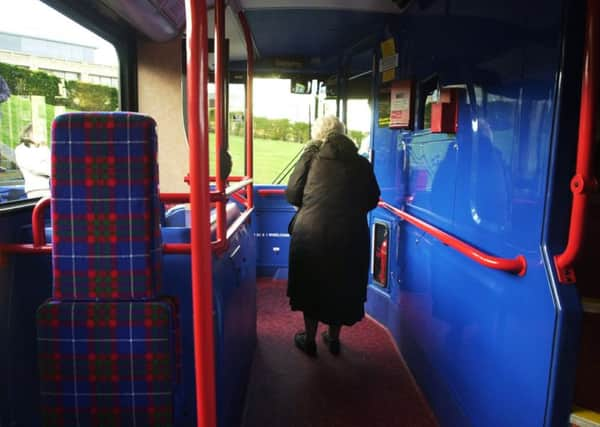M Ray: Scottish Government not giving proper support to bus industry


However, the unintended consequences of this spending are arguably more important than the intended benefits. Nobody should be surprised at a government decision to deliver free bus travel for all over 60s, but to reimburse operators at only 56.9 per cent of the fare leads to operators cutting services across the country. This is due to the resultant on-bus revenue failing to meet the required operating costs. Through this policy, the government has been responsible for removing copious bus services across the country and contributing to the current crisis in the industry.
The Chartered Institute of Logistics and Transport (CILT) has long highlighted the Government’s own research showing the current model of investment needs to be changed to reverse the ongoing decline of this essential industry. Different investment is needed to help build a future bus industry that can form a critical part of an integrated transport system. Smart tickets, wifi and real-time information on all services need not be expensive, but could make buses fit for the 21st century.
Advertisement
Hide AdAdvertisement
Hide AdIt is not advocated here to remove a transport concessionary scheme altogether but rather to accept the recommendations for reform of the scheme that have been repeatedly made in reports by transport professionals to successive governments. Government seems to have been spatially blind when talking about a universal policy, when in practice the concessionary travel scheme has been highly targeted at those with the best accessibility.
By making benefits available to those with the greatest needs, the scheme would not just become more equitable, but also more sustainable and affordable.
Many of the sexagenarians who voted in 2016 and were in possession of a “free bus pass” will use it to travel to work or for days out with longer trips across Scotland. However, in 20 years when these same people are Octogenarians and rely on local bus services to travel to essential services, what level of help will be available? Experts have long argued that capping the benefit each individual can receive at a level that enables people to make essential local journeys, combined with administration which pays fares for users rather than reimburses operators for services provided, would streamline the scheme and help the industry.
These changes will not necessarily be the most popular with operators extracting the greatest returns for shareholders or with government’s seeking votes from more affluent people, but it is the role of professional bodies like CILT to encourage better practice by both politicians and operators.
Two key challenges, particularly for older people, in today’s society are loneliness, and vulnerability within the home from bogus workmen and scam phone calls. Isolation with no means of accessing local transport and thus regularly connecting with the outside world can only exacerbate this situation and adversely impact on mental and physical health, as well as general wellbeing. Furthermore, bus passenger spending remains the lifeblood of many struggling high streets. Without changes to Government bus investment the inevitable ongoing demise of local bus services could have far reaching implications, and costs for programmes seeking social inclusion, regeneration and a fairer Scotland.
A side effect of the 56.9 per cent concessionary reimbursement rate is that the single adult fare is often inflated by operators to make services viable, making bus use uncompetitive with car travel for fare-paying passengers.
While many bus operators offer very good multi-journey ticket schemes to tackle this problem, high single bus fares still discourage modal shift for adults who could travel by bus 2 or 3 days a week. This is not a good fit for the Air Quality agenda.
Lack of transport or the high cost of transport can also be a barrier to many in terms of accessing work or further education. As more commercial journeys are withdrawn, the isolated and excluded communities will suffer more. The longterm implications for rural areas do not bode well.
Advertisement
Hide AdAdvertisement
Hide AdCurrently this national policy failure translates to a burden for local authorities. When services decline as a result of central government policy the local authorities need to make challenging decisions about which local services to prioritise. The only way local authorities can replace a bus service through subsidy is by making cuts elsewhere.
An integrated transport system requires many modes and business models but current Scottish Government bus policy undermines the bus industry. CILT in its policy papers and discussions with government urges new approaches to keep our country connected for future generations.
This article represents the views of many people within CILT but is not intended to be a consensus position. The Institute seeks a wider public debate about the challenges facing transport and logistics so would welcome feedback on any of the issues raised.
M Roy(CMILT) Chartered Institute of Logistics and Transport